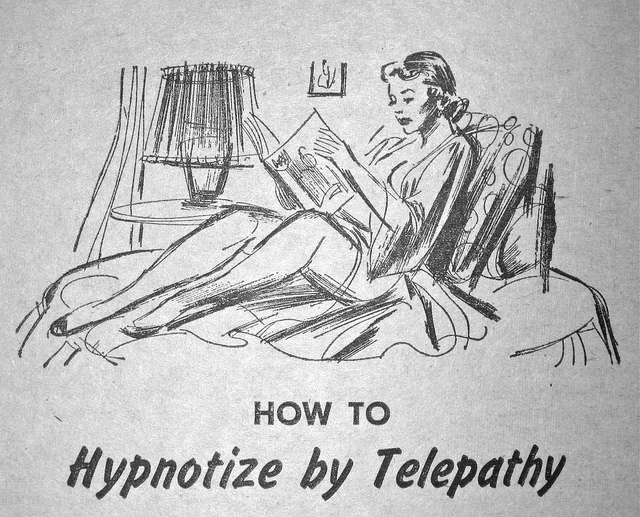
On Monday, I read this news story about the deaths of three teens in Florida. It’s a puzzler, to be sure. The headline reads as follows: “‘They all ended up dead’: anger lingers over students who died after hypnosis.”
The meat of the story is that three teens at the same school died — one car crash and two suicides. All three had been among roughly seventy five people — students and adults alike — who their high school principal had been “treating” with hypnotherapy, without a license. Now, all three families are being paid $200,000 each by the school board as a part of a wrongful death settlement.
Now, you might be thinking, as a skeptic, that they’re being paid off because somehow the hypnotherapy was being done and was serving to keep them away from some kind of real mental health treatment, especially in the case of the two suicides. That’s what I thought at first. But I’m really questioning that now.
The article, at least some of the families of the deceased, and their lawyers, all seem to be alleging that the three students died because of hypnotism.
- “He altered the underdeveloped brains of teenagers, and they all ended up dead because of it.” [Said the attorney]
- Kenney taught Freeman [the car-crash victim] to “self-hypnotise” to help him overcome pain during games, according to police reports, and lost control of his car in March 2011 driving home from a dentist appointment. His girlfriend, who was badly injured but survived, told police that Freeman “had a strange look on his face” moments before his car veered off an interstate.
- “What I believe happened is my daughter went into her room that night and blinked her eyes and she entered a calm and relaxed state that allowed her to go through what she went through,” [suicide victim] Brittany’s mother Patricia said.
I’m not really sure what to say, aside from the obvious knee-jerk “correlation doesn’t equal causation” stuff. There’s no reliable evidence that hypnotism can do any of the things they’re claiming, that you can “self-hypnotise” while driving a car, that you can be hypnotize yourself into a calm state for the purposes of committing suicide. Hell, there’s barely any evidence that hypnosis works any more than cognitive behavioural therapy or just mindfulness meditation. It’s damn near impossible to design a study to even test against placebo for it, because in large part it seems to rely on harnessing the placebo effect or something like it. To win in court, at least in that argument, you’d have to first show that hypnosis can reliably do anything, and only then that it could do harm.
So why the heck did they settle? The article even says that just before the settlement, “the Sarasota school board was preparing a defence [sic] that there was no link between the hypnotism and the teenagers’ deaths.” They even hired their own hypnotherapist to refute the claims of plausibility. And then, the settlement.
All I can do is theorize. Maybe the schoolboard realized that in the case of the two suicidal students, their employee had been engaging in mental health counseling without a license, which may through negligence (which is what you’d call giving someone fake therapy instead of forwarding at-risk patients to a licensed counselor) have led to them committing suicide. Maybe they did the math on the lawsuit and realized that it’d be better just to spend the money on grieving families and an indemnification clause. But I have a seriously hard time believing that at any point they sat back and said to themselves, “well, hypnotism is a dangerous thing to do to people, and we might be liable for that.”
In the end, they haven’t accepted any liability (part of the terms of the typical settlement: “we’ll pay because we feel bad, but we didn’t do anything wrong”) and the whole matter has been dropped. But I just can’t shake the feeling that this is just going to give fuel to the fire of the evidence-free claims that are already too prevalent in people’s minds about hypnotism.
For more on the skeptical view of hypnotism, see these links, which basically say we don’t know if it “works” for, well, anything really, except maybe making people think they’re hypnotized (which, in itself, could be useful, I suppose). In the meantime, if you’ve got specialist knowledge of hypnotherapy, I’d love to hear from you.
***
Richard Ford Burley is a doctoral candidate in English at Boston College, where he’s writing about remix culture and the processes that generate texts in the Middle Ages and on the internet. In his spare time he writes about science, skepticism, and feminism (and hypnotherapy) here at This Week In Tomorrow.
